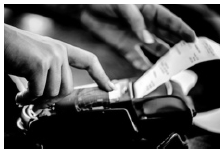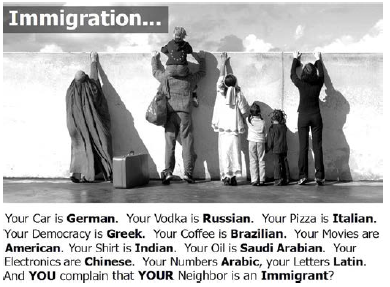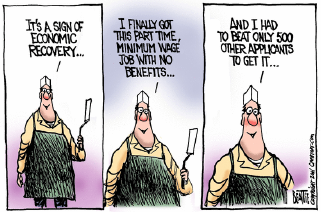Questões de Vestibular UNICAMP 2018 para Vestibular
Foram encontradas 9 questões
Touching thermal-paper receipts could extend BPA retention in the body

(Deirdre Lockwood, Touching thermal-paper receipts could extend BPA retention in the body. Chemical & Engineering News, 04/09/2017.)
O texto discorre sobre uma pesquisa cujo objetivo foi
Known simply as M77232917, the figure is arrived at by calculating two to the power of 77,232,917 and subtracting one, leaving a gargantuan string of 23,249,425 digits. The result is nearly one million digits longer than the previous record holder discovered in January 2016. The number belongs to a rare group of so-called Mersenne prime numbers, named after the 17th century French monk Marin Mersenne. Like any prime number, a Mersenne prime is divisible only by itself and one, but is derived by multiplying twos together over and over before taking away one. The previous record-holding number was the 49th Mersenne prime ever found, making the new one the 50th.
(Adaptado de Ian Sample, “Largest prime number discovered: with more than 23m digits”. The Guardian, 04/ 01/2018.)
Considerando as informações contidas no excerto anterior, qual dos números a seguir é um primo de Mersenne?

(Adaptado de https://br.pinterest.com. Acessado em 10/06/2018.)
O post anterior aponta

(Disponível em https://www.creators.com/read/bruce-beattie/01/11/70433. Acessado em 18/03/2018.)
Este cartum foi criado pelo norte-americano Bruce Beattie, em 2011. Nele, o cartunista faz uso da ironia para
 We raise girls to cater to the fragile
egos of men. We teach girls do shrink
themselves, to make themselves
smaller. We tell girls ‘You can have
ambition, but not too much’. ‘You
should aim to be successful, but not too successful,
otherwise you will threaten the man’. (…) We teach girls
shame – ‘Close your legs, cover yourself!’. We make them
feel as though by being born female, they’re already guilty
of something. And so, girls grow up to be women who
cannot see they have desire. They grow up to be women
who silence themselves. They grow up to be women who
cannot say what they truly think. And they grow up – and
this is the worst thing we do to girls – to be women who
turn pretense into an art form.
We raise girls to cater to the fragile
egos of men. We teach girls do shrink
themselves, to make themselves
smaller. We tell girls ‘You can have
ambition, but not too much’. ‘You
should aim to be successful, but not too successful,
otherwise you will threaten the man’. (…) We teach girls
shame – ‘Close your legs, cover yourself!’. We make them
feel as though by being born female, they’re already guilty
of something. And so, girls grow up to be women who
cannot see they have desire. They grow up to be women
who silence themselves. They grow up to be women who
cannot say what they truly think. And they grow up – and
this is the worst thing we do to girls – to be women who
turn pretense into an art form.
(Adaptado da palestra “We should all be feminists”, 15/07/2009. Disponível em https://www.youtube.com/watch?v=hg3umXU_qWc&t=797s. Acessado em 14/05/2018.)
O texto anterior reproduz trechos de uma palestra
proferida pela escritora nigeriana Chimamanda Adichie em
2009. Segundo a autora, o fato de serem criadas para
agradar aos homens faz com que as mulheres

(Adaptado de https://www.teachersloungeshop.com. Acessado em 30/04/2018.)
Os dizeres da camiseta
Elena Ferrante
I love my country, but I have no patriotic spirit and no national pride. What’s more, I digest pizza poorly, I eat very little spaghetti, I don’t speak in a loud voice, I don’t gesticulate, I hate all mafias, I don’t exclaim “Mamma mia!” National characteristics are simplifications that should be contested. Being Italian, for me, begins and ends with the fact that I speak and write in the Italian language. Put that way it doesn’t seem like much, but really it’s a lot. A language is a compendium of the history, geography, material and spiritual life, the vices and virtues, not only of those who speak it, but also of those who have spoken it through the centuries. When I say that I’m Italian because I write in Italian, I mean that I’m fully Italian in the only way that I’m willing to attribute to myself a nationality. I don’t like the other ways, especially when they become nationalism, chauvinism, and imperialism.
(Adaptado de Elena Ferrante, ‘Yes, I´m Italian – but I´m not loud, I don´t gesticulate and I´m not good with pizza’, The Guardian, 24/02/2018.)
Transcrevem-se, a seguir, versos de canções brasileiras e de um poema de Vinícius de Moraes. Assinale a alternativa que melhor exemplifica as afirmações de Elena Ferrante.
By Edna St. Vincent Millay
Love is not all: It is not meat nor drink Nor slumber nor a roof against the rain; Nor yet a floating spar to men that sink And rise and sink and rise and sink again; Love cannot fill the thickened lung with breath, Nor clean the blood, nor set the fractured bone; Yet many a man is making friends with death Even as I speak, for lack of love alone. It well may be that in a difficult hour, Pinned down by need and moaning for release, Or nagged by want past resolution's power, I might be driven to sell your love for peace, Or trade the memory of this night for food. It may well be. I do not think I would.
(Disponível em https://www.poemhunter.com/. Acessado em 28/05/2018.)
De acordo com o poema
Genetic Fortune-Telling

One day, babies will get DNA report cards at birth. These
reports will offer predictions about their chances of suffering
a heart attack or cancer, of
getting hooked on tobacco,
and of being smarter than
average.
Though the new DNA tests offer probabilities, not diagnoses, they could greatly benefit medicine. For example, if women at high risk for breast cancer got more mammograms and those at low risk got fewer, those exams might catch more real cancers and set off fewer false alarms. The trouble is, the predictions are far from perfect. What if someone with a low risk score for cancer puts off being screened, and then develops cancer anyway? Polygenic scores are also controversial because they can predict any trait, not only diseases. For instance, they can now forecast about 10 percent of a person’s performance on IQ tests. But how will parents and educators use that information?
(Adaptado de Derek Brahney, Genetic Fortune-Telling. MIT Technology Review, Março/Abril 2018)
De acordo com o texto, um dos riscos do prognóstico
genético dos indivíduos desde o nascimento seria o de